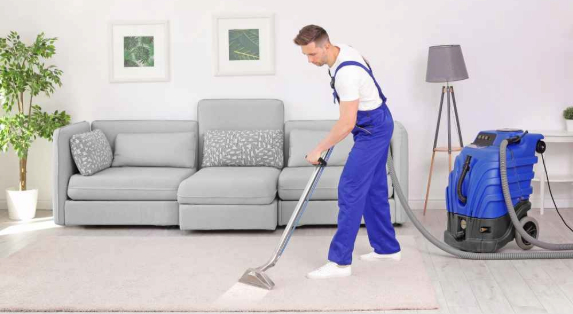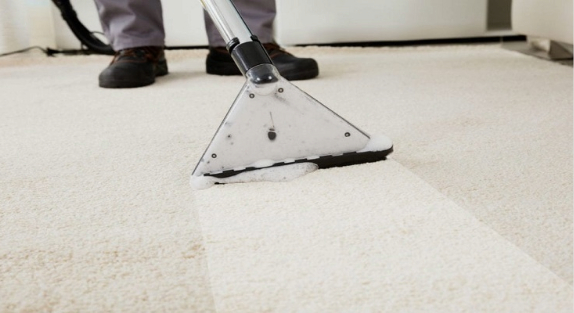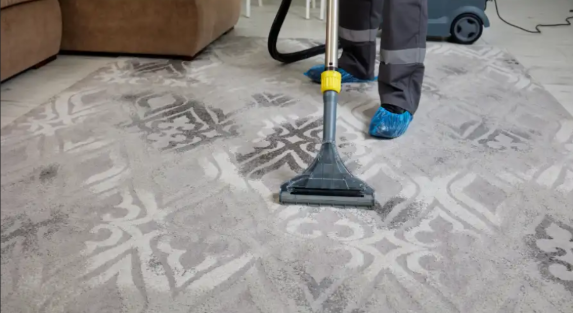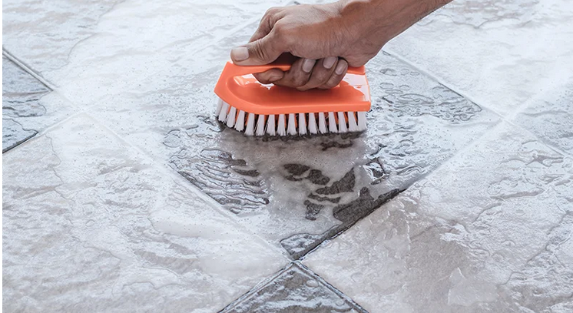

The Impact of Clean Carpets on Indoor Air Quality
Introduction
Carpets are one of the most common types of flooring in homes and commercial spaces alike. They're comfortable, visually appealing, and often help in creating a cozy atmosphere. However, carpets also have an undeniable effect on indoor air quality (IAQ), especially when they aren’t properly maintained. While carpets can contribute to the comfort and aesthetics of a room, they can also trap dirt, dust, allergens, and bacteria, all of which can negatively impact the air you breathe. This is why carpet cleaning is not just a matter of appearance but an essential task for ensuring the cleanliness and safety of your living environment.|
This article will explore the significant impact clean carpets have on indoor air quality, the dangers of neglecting carpet cleaning, the benefits of regular maintenance, and tips for keeping your carpets clean and healthy. By the end, you'll have a clearer understanding of how carpet cleaning can drastically improve the air quality in your home or office.
How Carpets Affect Indoor Air Quality
Carpets have the ability to trap a wide range of particles, including dust, pollen, pet dander, dirt, mold spores, and even bacteria. When carpets are dirty, these particles become embedded deep within the fibers and can remain there for a long time. Over time, these pollutants break down and, in some cases, may even become airborne again when disturbed.
Dust and Allergens
Dust mites, microscopic creatures that thrive in warm, humid environments, are one of the most common indoor allergens found in carpets. They feed on dead skin cells and other organic matter, which means they flourish in homes where dust is abundant. Carpet fibers provide the perfect environment for these pests to thrive, and they often lead to allergic reactions such as sneezing, itchy eyes, and asthma.
Pollen and pet dander are also common triggers for allergy sufferers, and carpets serve as ideal repositories for these particles. As individuals walk over carpets, these allergens can be stirred up and released back into the air, exacerbating respiratory issues and allergies.
Bacteria and Mold
Moisture is another key factor that contributes to poor indoor air quality. Carpets, especially in areas like basements, bathrooms, or kitchens, can absorb moisture from spills, humidity, or leaks. When this moisture is trapped in the fibers and not addressed promptly, it can create the perfect breeding ground for mold and bacteria.
Mold can cause a range of health issues, including respiratory problems, headaches, and skin irritation. In fact, mold exposure can be particularly dangerous for people with asthma, allergies, or weakened immune systems. By cleaning carpets regularly and properly, you can help prevent the growth of mold and the proliferation of harmful bacteria.
Volatile Organic Compounds (VOCs)
In addition to dust, bacteria, and mold, carpets can also contribute to indoor air pollution through the presence of volatile organic compounds (VOCs). VOCs are chemicals emitted from various sources, including cleaning products, paints, and synthetic carpets. These compounds can off-gas from carpets, especially new carpets that have been recently installed.
VOCs can cause a variety of symptoms, such as headaches, dizziness, nausea, and eye or throat irritation. To reduce the presence of VOCs in your indoor environment, it's important to regularly clean carpets and choose low-VOC or eco-friendly carpet cleaning products.
The Role of Carpet Cleaning in Improving Indoor Air Quality
Regular carpet cleaning can have a profound effect on improving indoor air quality by removing trapped pollutants and allergens from your carpets. Here’s how:
Removing Dust and Allergens
A professional carpet cleaning service uses specialized equipment and techniques to deeply clean carpets and remove dust mites, pet dander, and other allergens. Vacuuming alone can only remove surface dust, but deep cleaning can extract these particles from the depths of the carpet fibers. Hot water extraction, also known as steam cleaning, is one of the most effective methods for removing dust and allergens, as it uses high temperatures to break down and remove dirt and particles.
Eliminating Mold and Bacteria
Carpet cleaning services also help in eliminating mold spores and bacteria that may have accumulated in your carpets. By using high-powered vacuums and cleaning solutions, professionals can remove the moisture and contaminants that encourage mold growth, effectively preventing the spread of harmful microorganisms. If mold is already present, some carpet cleaning services offer specialized treatments to remove it completely.
Reducing VOCs and Chemicals
While cleaning carpets can help reduce the presence of VOCs that may be off-gassing from your carpet, it’s essential to use eco-friendly cleaning products that don’t release harmful chemicals back into the air. Look for cleaning solutions that are free from harsh chemicals like ammonia and bleach, as these can contribute to poor indoor air quality.
Improving Overall Air Circulation
Another benefit of carpet cleaning is that it helps improve overall air circulation in a room. Clean carpets are less likely to trap dust and debris, which can block airflow and reduce the efficiency of your HVAC system. When carpets are clean, the air in your home is more likely to circulate freely, making it easier for your air conditioning or heating system to maintain optimal indoor air quality.
Benefits of Clean Carpets for Health
The most obvious benefit of clean carpets is improved health. By eliminating allergens, bacteria, and mold from your carpets, you can significantly reduce the risk of respiratory issues, allergies, and asthma. Clean carpets contribute to a healthier living environment, which can lead to better overall well-being.
Respiratory Health
As mentioned earlier, carpets can harbor allergens and pollutants that exacerbate respiratory problems. Clean carpets help reduce the presence of these harmful particles, making the air in your home healthier to breathe. This is particularly important for individuals with asthma, allergies, or other respiratory conditions, as clean carpets can minimize triggers that lead to flare-ups.
Skin Health
Dirty carpets don’t just affect the air you breathe; they can also affect your skin. Bacteria and mold trapped in carpets can cause skin irritation and lead to conditions such as eczema or rashes. By keeping your carpets clean, you can help reduce the likelihood of skin issues caused by allergens and harmful microorganisms.
Mental Health
A clean home environment has been shown to have a positive effect on mental health as well. When your carpets are clean, your home feels fresher, more inviting, and less cluttered. Clean carpets contribute to a sense of well-being and comfort, which can help reduce stress and anxiety. A clean, well-maintained home promotes relaxation and a positive mindset.
Tips for Maintaining Clean Carpets and Air Quality
To reap the benefits of clean carpets and ensure that your indoor air quality remains optimal, consider the following carpet cleaning tips:
Vacuum Regularly: Vacuuming at least once a week can help remove surface dust and debris. Make sure to use a vacuum with a HEPA filter, which can trap tiny particles and prevent them from being released back into the air.
Deep Clean Frequently: Professional carpet cleaning should be done at least once a year, or more frequently if you have pets or suffer from allergies. Steam cleaning or hot water extraction is the most effective method for removing allergens, bacteria, and mold.
Treat Spills Immediately: If a spill occurs, clean it up as soon as possible to prevent moisture from being absorbed into the carpet. This helps prevent the growth of mold and bacteria.
Use Eco-Friendly Products: When choosing carpet cleaning products, opt for eco-friendly options that are free of harsh chemicals. Look for natural cleaning solutions that won’t contribute to indoor air pollution.
Use Rugs and Mats: Place rugs or mats at entrances to trap dirt and dust before it gets into your carpets. This can help reduce the amount of debris that ends up trapped in your carpet fibers.
Control Humidity: Maintaining proper humidity levels in your home (ideally between 30-50%) can help prevent mold growth in your carpets. Use dehumidifiers or air conditioning to keep humidity levels in check, especially in high-moisture areas like basements.
Rotate Furniture Regularly: Rotating furniture occasionally can help prevent heavy wear in certain areas of the carpet. This ensures that dust and dirt don’t build up in specific spots, which could affect air circulation.
Conclusion
Carpet cleaning plays a critical role in maintaining indoor air quality. Dirty carpets are a breeding ground for allergens, bacteria, mold, and VOCs, all of which can contribute to poor indoor air quality and health issues. By investing in regular carpet cleaning, you can improve the air you breathe, reduce allergy symptoms, and create a healthier environment for you and your family. Whether you choose to vacuum regularly or hire a professional for deep cleaning, maintaining clean carpets is a simple yet effective way to enhance your home’s air quality and overall well-being.


